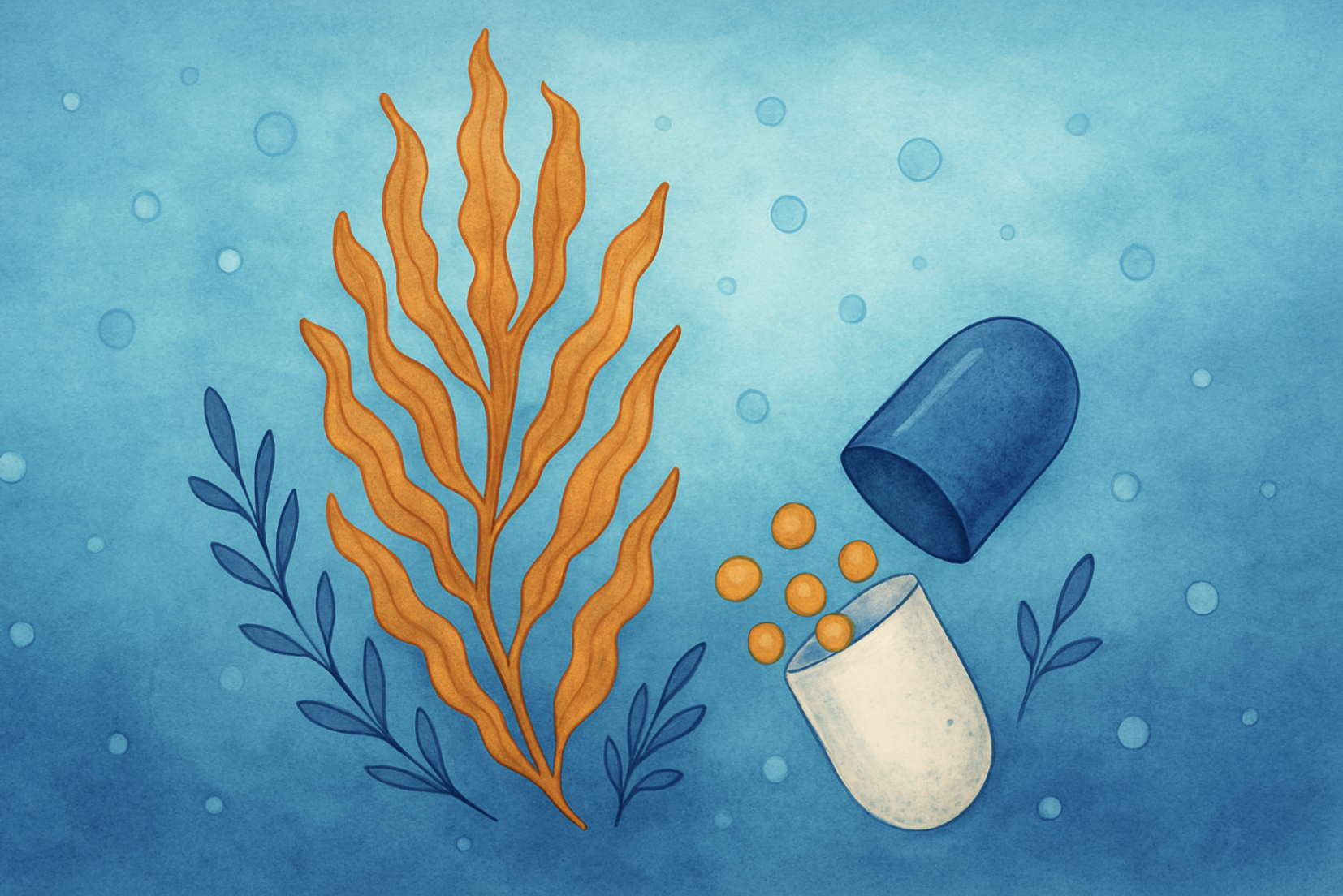Cer-Se: Cultivation and Sustainable Extraction of Ericaria selaginoides

- Summary
- Fact Sheet
- Project Details
CEr-Se is a prototype project designed within the Master in Biotechnology of Marine Resources at the Polytechnic University of Leiria. It explores the sustainable cultivation and extraction of bioactive compounds from Ericaria selaginoides, a native brown macroalga, for use in therapeutic development.
Focusing on major global health challenges—antibiotic resistance, neurodegenerative disorders, and diabetes—the project proposes algae-derived alternatives to conventional pharmaceuticals. It also highlights secondary applications in cosmetics and agriculture, promoting circularity through the use of natural and biodegradable substances.
CEr-Se employs green extraction methods and integrates waste from other industries (e.g., olive kernel residues) to reduce environmental impact. The project aligns with SDGs 3 (Good Health and Well-being), 12 (Responsible Consumption and Production), and 14 (Life Below Water), and represents a promising path for future marine-based therapeutics.
Challenge
The project tackles several significant challenges that align with the United Nations Sustainable Development Goals (SDGs). One of the primary challenges addressed is antibiotic resistance, which is a growing global health threat. The project aims to harness the bioactive compounds found in the brown alga Ericaria selaginoides to create new, effective antibiotics. Another critical challenge is the lack of effective treatments for neurodegenerative diseases such as Alzheimer’s and Parkinson’s. Current treatments only alleviate symptoms without significantly altering the progression of these diseases. So, the project seeks to provide more effective treatments that can potentially modify the course of these debilitating conditions. Finally, the project also addresses the scarcity of antidiabetic medications, a problem exacerbated by high demand and misuse. By developing new antidiabetic drugs, the project aims to ensure a stable supply of these essential medications, thereby improving the health and well-being of individuals with diabetes. These efforts directly contributes to SDG 3: Good Health and Well-being, by ensuring healthy lives and promoting well-being for all at all ages.
Environmental sustainability is another key challenge tackled by the project. The use of sustainable and environmentally friendly production methods, such as green technologies and a circular economy approach, minimizes waste and reduces the environmental impact of the extraction processes. This approach supports SDG 12. Furthermore, the project promotes marine biodiversity conservation by focusing on the sustainable cultivation of Ericaria selaginoides. This effort helps restore natural populations of the alga, which are sensitive to environmental stressors and pollution. By supporting marine biodiversity, the project contributes to SDG 14. Lastly, the project fosters partnerships and collaboration among research institutions, industries, and small producers aligning with SDG 17.
Target Groups:
- Pharmaceutical companies: Interested in developing new drugs.
- Cosmetic companies: Looking for natural and sustainable ingredients.
- Healthcare providers and patients: Benefiting from new treatments for neurodegenerative diseases, diabetes, and infections.
- Agricultural sector: Utilizing bioactive compounds as natural herbicides.
Solution
The project proposes the sustainable cultivation and extraction of bioactive compounds from the brown alga Ericaria selaginoides and from olive kernel waste. The extracted compounds will be used to develop pharmaceuticals for treating antibiotic-resistant infections, neurodegenerative diseases, and diabetes, cosmetic products with antioxidant and exfoliant properties and the final waste will be used in agricultural products like natural herbicides.
Innovation
The project employs sustainable extraction methods using green technologies such as ultrasonic extraction and ethanol-based solvents, adopts a circular economy approach by utilizing waste products like olive pits to enhance the bioactive compound extraction process, and ensures comprehensive utilization by maximizing the use of all extracted compounds for various applications, thereby minimizing waste.
Impact
The project focuses on the development of new, effective treatments for major health issues, implements sustainable practices that support marine biodiversity and reduce pollution, while fostering the creation of new market opportunities and products, thereby contributing to economic growth and job creation.
Feasibility and Transferability
The project is feasible with the right initial investment, partnerships with research centers, and compliance with regulatory requirements. The methods and technologies used can be adapted to other regions and other types of algae or natural resources, making the project scalable and replicable in different contexts. This comprehensive approach not only addresses significant health and environmental challenges but also aligns with sustainable development goals, making it a promising and impactful initiative.
This student project is submitted through:
School of Tourism and Maritime Technology, Polytechnic University of Leiria
It involved 3 students of the Master in Biotechnology of Marine Resources
Project presentation video: Watch Here
